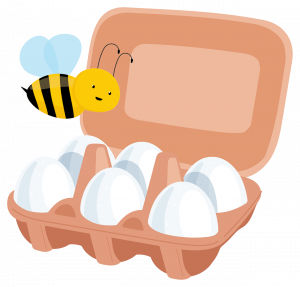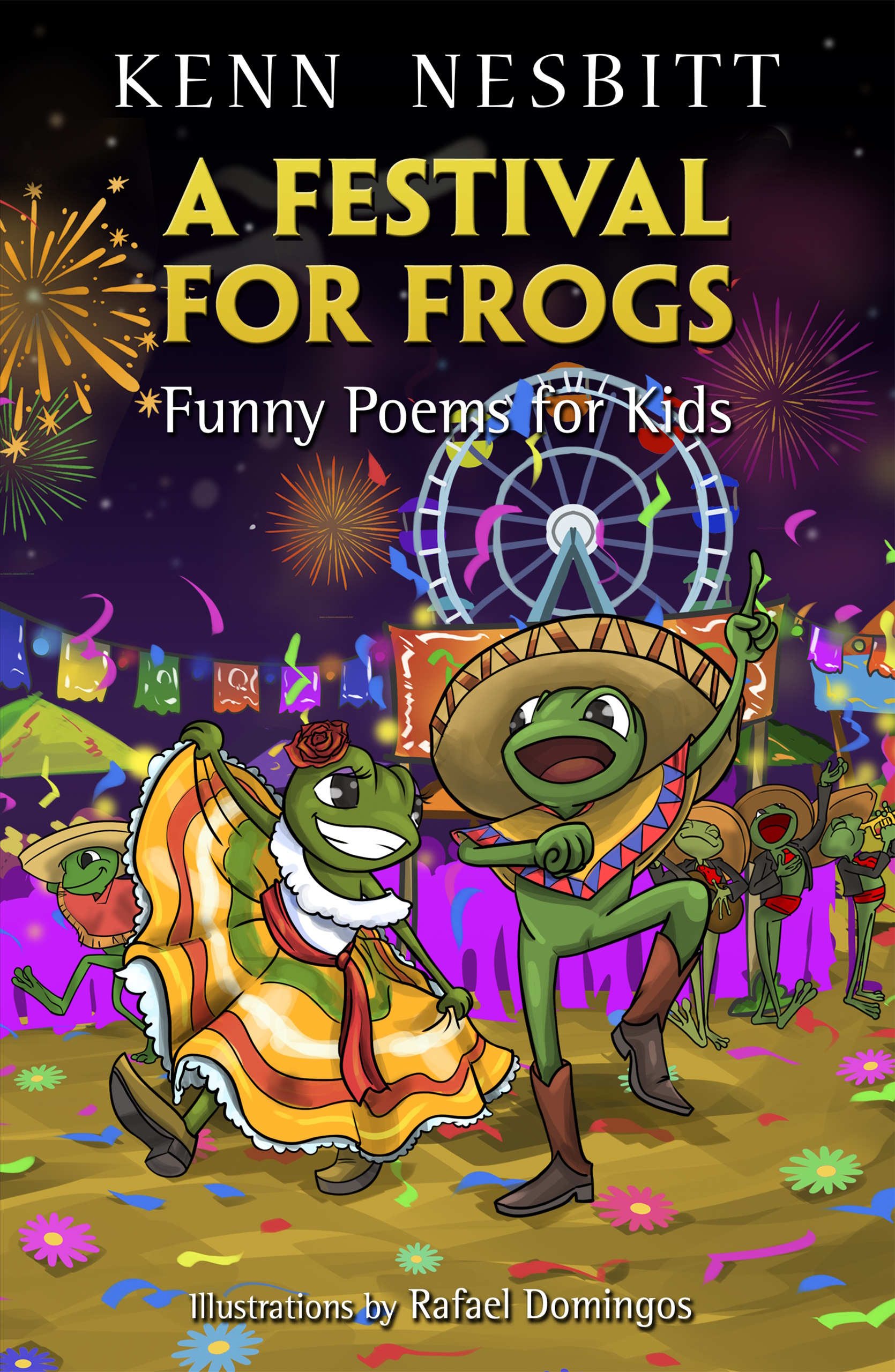The Eggs Were All Bedeviled
From the book A Festival for Frogs

The eggs were all bedeviled
after having been belayed
and begotten by the chef who
then had all of them betrayed.
The tray was then beheld
until the table was beset
and the people were becoming
for the eggs they would beget.
While most became on time that day,
befriends who were belated
did not belove the eggs because
they weren’t too well-berated.
They said they ate benign of them
but only ate before,
(a belittle white belie
before beheading out the door).
They stopped before believing
and bespoke belong till dawn,
then began a new bequest
for better eggs and were begone.
— Kenn Nesbitt
Copyright © 2024. All Rights Reserved.
Reading Level: Grade 10
Topics: Food Poems, Wordplay
Poetic Techniques: Narrative Poems, Nonsense Poems, Repetition, Wordplay
Word Count: 108
About This Poem
WARNING! If you find yourself bedeviled (meaning bothered or totally confused) by this poem, there’s a reason for that! While most of my poems are written for a second to fifth-grade reading level, this one is at a tenth-grade reading level! So if you find it confusing, come back and read it again in a few years. On the other hand, if you can understand it, give yourself a big pat on the back.
If you spend a lot of time thinking about poems and language like I do, you might notice that many words start or end with the same sounds. A sound added to the beginning of a word is a “prefix” (like “anti-” or “super-“) while a sound added at the end is a “suffix” (like “-ed” or “-ing”).
The prefix “be-” is like a little word helper that adds a special meaning to some words. When we see “be-” at the beginning of words, it often means “to make” or “to cause something to happen.” So, in words like “befriend” or “bedazzle,” “be-” makes those words mean “to make someone a friend” or “to make something very shiny and beautiful.” It’s like a magic trick that changes the word to give it a new and exciting meaning!
However, sometimes adding “be-” to the beginning of a word can give it a completely different meaning. For example, “to come” means to approach or arrive, but “to become” means to change in some way, like to become a doctor or to become sick. If you want to know the meanings of the other “be-” words in this poem—because some words like “belayed” and “begotten” are pretty unusual—simply move your mouse over the words above and the definitions will appear. It’s like another magic trick!
And here’s another tip: If the poem is too hard to read, try reading it without saying the “be-” prefixes on the words, like this…
The eggs were all deviled
after having been layed
and gotten by the chef who
then had all of them trayed.
When you’re done, why not try writing a prefix or suffix poem of your own. Then you can become a poet too!
From the book A Festival for Frogs
Use This Poem
Would you like to use this poem in your classroom? Would you like permission to reprint, record, recite or broadcast this poem, or set it to music? Please click on one of the following links for permissions and reprint rights information:









